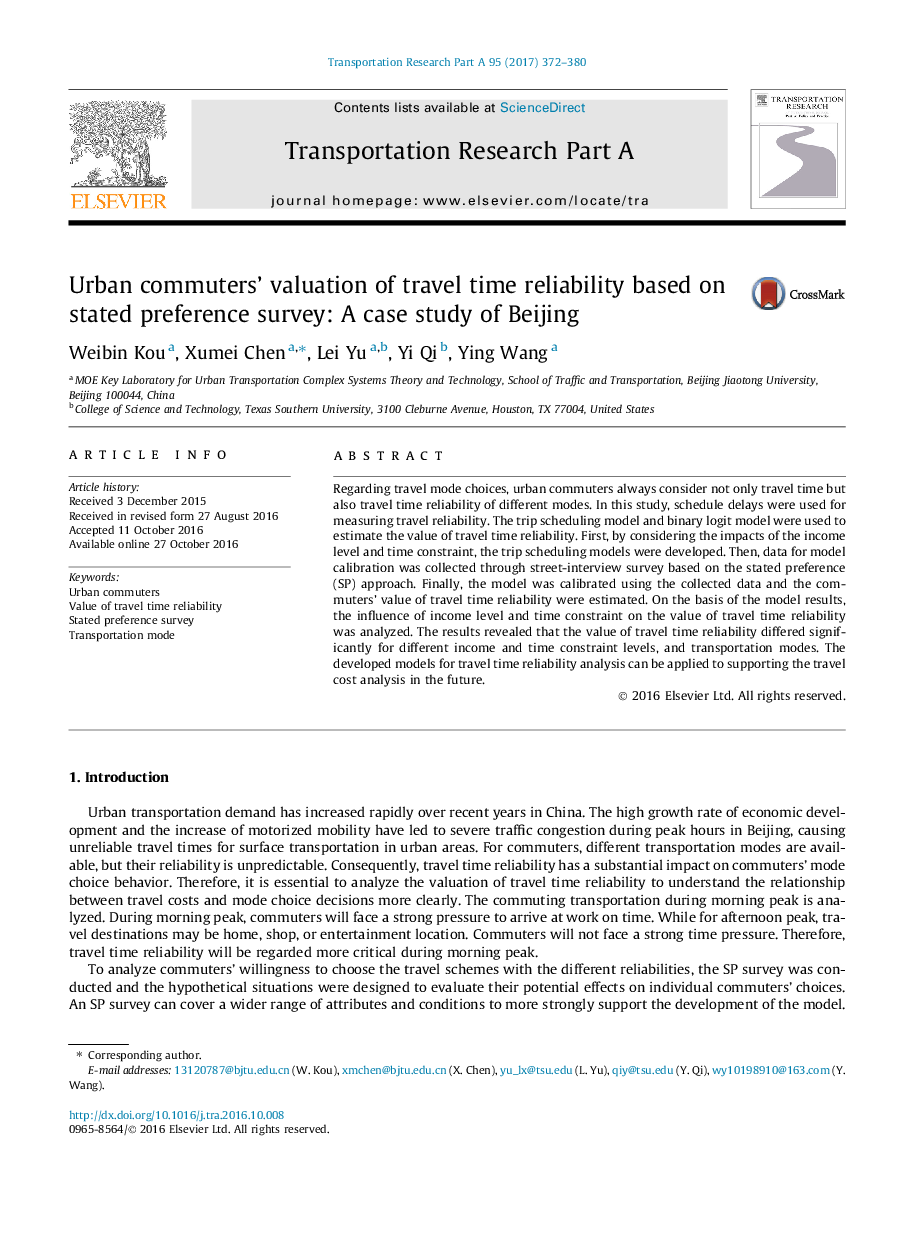| Article ID | Journal | Published Year | Pages | File Type |
|---|---|---|---|---|
| 4929089 | Transportation Research Part A: Policy and Practice | 2017 | 9 Pages |
â¢The commuters' value of travel time reliability are estimated.â¢The income level and time constraint are two significant influencing factors.â¢Travel variations cause larger negative utility than travel times.â¢The probability of being late is the most key factor considered by commuters.
Regarding travel mode choices, urban commuters always consider not only travel time but also travel time reliability of different modes. In this study, schedule delays were used for measuring travel reliability. The trip scheduling model and binary logit model were used to estimate the value of travel time reliability. First, by considering the impacts of the income level and time constraint, the trip scheduling models were developed. Then, data for model calibration was collected through street-interview survey based on the stated preference (SP) approach. Finally, the model was calibrated using the collected data and the commuters' value of travel time reliability were estimated. On the basis of the model results, the influence of income level and time constraint on the value of travel time reliability was analyzed. The results revealed that the value of travel time reliability differed significantly for different income and time constraint levels, and transportation modes. The developed models for travel time reliability analysis can be applied to supporting the travel cost analysis in the future.
